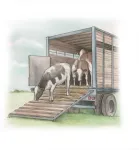(Press-News.org) Education saves lives regardless of age, sex, location, and social and demographic backgrounds. That’s according to the latest and largest study of its kind published today in The Lancet Public Health.
Researchers have known that those who reach higher levels of schooling live longer than others, but they didn’t know to what extent until now. What they found was that the risk of death drops by two per cent with every additional year of education. That means those who completed six years of primary school had a lower risk of death by an average of 13 per cent. After graduating from secondary school, the risk of dying was cut by nearly 25 per cent, and 18 years of education lowered the risk by 34 per cent.
Researchers also compared the effects of education to other risk factors such as eating a healthy diet, smoking, and drinking too much alcohol, and they found the health outcome to be similar. For example, the benefit of 18 years of education can be compared to that of eating the ideal amount of vegetables, as opposed to not eating vegetables at all. Not going to school at all is as bad for you as drinking five or more alcoholic drinks per day or smoking ten cigarettes a day for 10 years.
“Education is important in its own right, not just for its benefits on health, but now being able to quantify the magnitude of this benefit is a significant development,” said Dr. Terje Andreas Eikemo, co-author and head of Centre for Global Health Inequalities Research (CHAIN) at the Norwegian University of Science and Technology (NTNU).
While the benefits of education are greatest for young people, those older than 50 and even 70 years still benefit from the protective effects of education.
Researchers found no significant difference in the effects of education between countries that have reached different stages of development. This means that more years of education is just as effective in rich countries as in poor countries.
“We need to increase social investments to enable access to better and more education around the globe to stop the persistent inequalities that are costing lives,” said Mirza Balaj, co-lead author and postdoctoral fellow at NTNU’s Department of Sociology and Political Science. “More education leads to better employment and higher income, better access to healthcare, and helps us take care of our own health. Highly educated people also tend to develop a larger set of social and psychological resources that contribute to their health and the length of their lives.”
“Closing the education gap means closing the mortality gap, and we need to interrupt the cycle of poverty and preventable deaths with the help of international commitment,” said Claire Henson, co-lead author and researcher at Institute for Health Metrics and Evaluation (IHME) at the University of Washington’s School of Medicine. “In order to reduce inequalities in mortality, it’s important to invest in areas that promote people’s opportunities to get an education. This can have a positive effect on population health in all countries.”
The study identified data from 59 countries and included over 10,000 data points collected from over 600 published articles. Most of the studies reviewed for this study were from high-income settings, highlighting the need for more research in low- and middle-income countries, particularly from sub-Saharan and north Africa where data are scarce.
“Our focus now should be on regions of the world where we know access to schooling is low, and where there is also limited research on education as a determinant of health,” said Dr. Emmanuela Gakidou, co-author and professor at IHME.
END
Learning for life: The higher the level of education, the lower the risk of dying
Scientists estimate every year of education reduces mortality by 2 per cent
2024-01-24
ELSE PRESS RELEASES FROM THIS DATE:
Community perinatal mental health teams reduce risk of mental health relapse after childbirth
2024-01-24
New research from the Institute of Psychiatry, Psychology & Neuroscience (IoPPN) at King’s College London, and in partnership with the University of Exeter and the London School of Hygiene & Tropical Medicine, has found that women with a history of severe mental illness face a lower risk of relapse after giving birth in regions where they have access to a community perinatal mental health team (CPMHT).
The research, published in Lancet Psychiatry, is the first of its kind to evaluate the effectiveness of CPMHTs, and suggests that women with access to specialist support have a reduced risk of acute relapse after birth, but also highlights the importance of the need for ...
Non-COVID-19 deaths among people with diabetes jumped during pandemic
2024-01-24
Non-COVID-19-related deaths among people with diabetes increased during the pandemic, as did the diabetes complication of sight loss, according to a global study review led by a University of Massachusetts Amherst public health researcher that examined the impacts of pandemic-related disruptions on this vulnerable population.
The review, commissioned by the World Health Organization (WHO) and published Jan. 23 in The Lancet Diabetes and Endocrinology, looked at 138 studies comparing pre-pandemic to during pandemic periods in North America (39), Western Europe (39), Asia (17), Eastern Europe (14), South America (four), Egypt (one), Australia ...
World's largest database of weeds lets scientists peer into the past, and future, of global agriculture
2024-01-24
New database of 928 species of weeds from Universities of Sheffield and Oxford published to provide free, global resource for plant ecologists and archaeologists
The data changes our understanding of the history of agriculture as well as ability to understand the future of our farming practices in a time of climate change
The project, based on 30 years of research partnerships, is a testament to how academics of different disciplines can collaborate on globally significant research
A new database of weeds that can help scientists understand how ...
Live animal transport regulations not ‘fit for purpose’, major international study finds
2024-01-24
A ‘fitness check’ of regulations in five countries meant to protect animals during transportation, has deemed that they all fall short of fully protecting animals during transport. Findings from this interdisciplinary work involving animal welfare scientists and a law lecturer which compared animal transport rules designed to protect the billions of livestock that are transported on lengthy journeys in Australia, Canada, New Zealand, EU (including UK) and US, highlights serious failures.
The study, published in Royal Society Open Science today [Wednesday 24 January], and involving researchers from the Universities ...
Mind the (green) gap
2024-01-23
Color mixing is the process of combining two or more colors: red and green make yellow, blue and red make purple, red and green and blue make white. This process of mixing colors is the basis for the future of solid-state lighting. While currently white light is achieved by phosphor down-conversion, LED color mixing actually has a higher theoretical maximum efficiency, which is needed in order to achieve the 2035 DOE energy efficiency goals. Despite the potential efficiency of color-mixed LED sources, there exists one significant challenge: green. ...
Injectable water filtration system could improve access to clean drinking water around the world
2024-01-23
More than 2 billion people, approximately a quarter of the world’s population, lack access to clean drinking water. A new, portable and affordable water filtration solution created by researchers at The University of Texas at Austin aims to change that.
The new system collects dirty water with a syringe and injects it into a hydrogel filter that weeds out nearly all tiny particles. This device, the researchers say, offers significant advantages in cost, simplicity, effectiveness and sustainability compared existing commercial options, giving users the ability to easily decontaminate water from nearby streams and ...
Gravity helps show strong force strength in the proton
2024-01-23
The power of gravity is writ large across our visible universe. It can be seen in the lock step of moons as they circle planets; in wandering comets pulled off-course by massive stars; and in the swirl of gigantic galaxies. These awesome displays showcase gravity’s influence at the largest scales of matter. Now, nuclear physicists are discovering that gravity also has much to offer at matter’s smallest scales.
New research conducted by nuclear physicists at the U.S. Department of Energy’s Thomas Jefferson National Accelerator Facility is using a method that connects theories of gravitation to interactions among the smallest ...
Cleveland Clinic and IBM Researchers publish findings on artificial intelligence and immunity
2024-01-23
Researchers from Cleveland Clinic and IBM have published a strategy for identifying new targets for immunotherapy through artificial intelligence (AI). This is the first peer-reviewed publication from the two organizations’ Discovery Accelerator partnership, designed to advance research in healthcare and life sciences.
The team worked together to develop supervised and unsupervised AI to reveal the molecular characteristics of peptide antigens, small pieces of protein molecules immune cells use to recognize threats. Project members ...
When some adolescent girls internalize rejection, it really is in their head
2024-01-23
Everyone ruminates about the bad things that happen to them. Whether it’s a nasty breakup, an embarrassing failure or simply when someone is mean, it can be hard to stop thinking about what happened and why. For people who ruminate too much, this negative thought pattern can cause lasting problems with mental health.
A research team led from the University of California, Davis, Center for Mind and Brain found that adolescent girls who have a stronger tendency to ruminate show different patterns of brain activity when faced with social rejection. The study was ...
Researchers design new open-source technology for interfacing with living neurons
2024-01-23
Neurons intricately communicate and respond to stimuli within a vast network, orchestrating essential functions from basic bodily processes to complex thoughts. Traditional neuroscience methods, relying on in vivo electrophysiology (within a living organism), often have difficulty addressing the complexity of the brain as a whole. An alternative approach involves extracting cells from the organism and conducting studies on a culture dish instead (in vitro), providing researchers with enhanced control and precision in measuring neural processes. In a new study featured in Advanced Science, researchers unveil a cost-effective, open-source in vitro system ...
LAST 30 PRESS RELEASES:
Emerging class of antibiotics to tackle global tuberculosis crisis
Researchers create distortion-resistant energy materials to improve lithium-ion batteries
Scientists create the most detailed molecular map to date of the developing Down syndrome brain
Nutrient uptake gets to the root of roots
Aspirin not a quick fix for preventing bowel cancer
HPV vaccination provides “sustained protection” against cervical cancer
Many post-authorization studies fail to comply with public disclosure rules
GLP-1 drugs combined with healthy lifestyle habits linked with reduced cardiovascular risk among diabetes patients
Solved: New analysis of Apollo Moon samples finally settles debate about lunar magnetic field
University of Birmingham to host national computing center
Play nicely: Children who are not friends connect better through play when given a goal
Surviving the extreme temperatures of the climate crisis calls for a revolution in home and building design
The wild can be ‘death trap’ for rescued animals
New research: Nighttime road traffic noise stresses the heart and blood vessels
Meningococcal B vaccination does not reduce gonorrhoea, trial results show
AAO-HNSF awarded grant to advance age-friendly care in otolaryngology through national initiative
Eight years running: Newsweek names Mayo Clinic ‘World’s Best Hospital’
Coffee waste turned into clean air solution: researchers develop sustainable catalyst to remove toxic hydrogen sulfide
Scientists uncover how engineered biochar and microbes work together to boost plant-based cleanup of cadmium-polluted soils
Engineered biochar could unlock more effective and scalable solutions for soil and water pollution
Differing immune responses in infants may explain increased severity of RSV over SARS-CoV-2
The invisible hand of climate change: How extreme heat dictates who is born
Surprising culprit leads to chronic rejection of transplanted lungs, hearts
Study explains how ketogenic diets prevent seizures
New approach to qualifying nuclear reactor components rolling out this year
U.S. medical care is improving, but cost and health differ depending on disease
AI challenges lithography and provides solutions
Can AI make society less selfish?
UC Irvine researchers expose critical security vulnerability in autonomous drones
Changes in smoking status and their associations with risk of Parkinson’s, death
[Press-News.org] Learning for life: The higher the level of education, the lower the risk of dyingScientists estimate every year of education reduces mortality by 2 per cent






